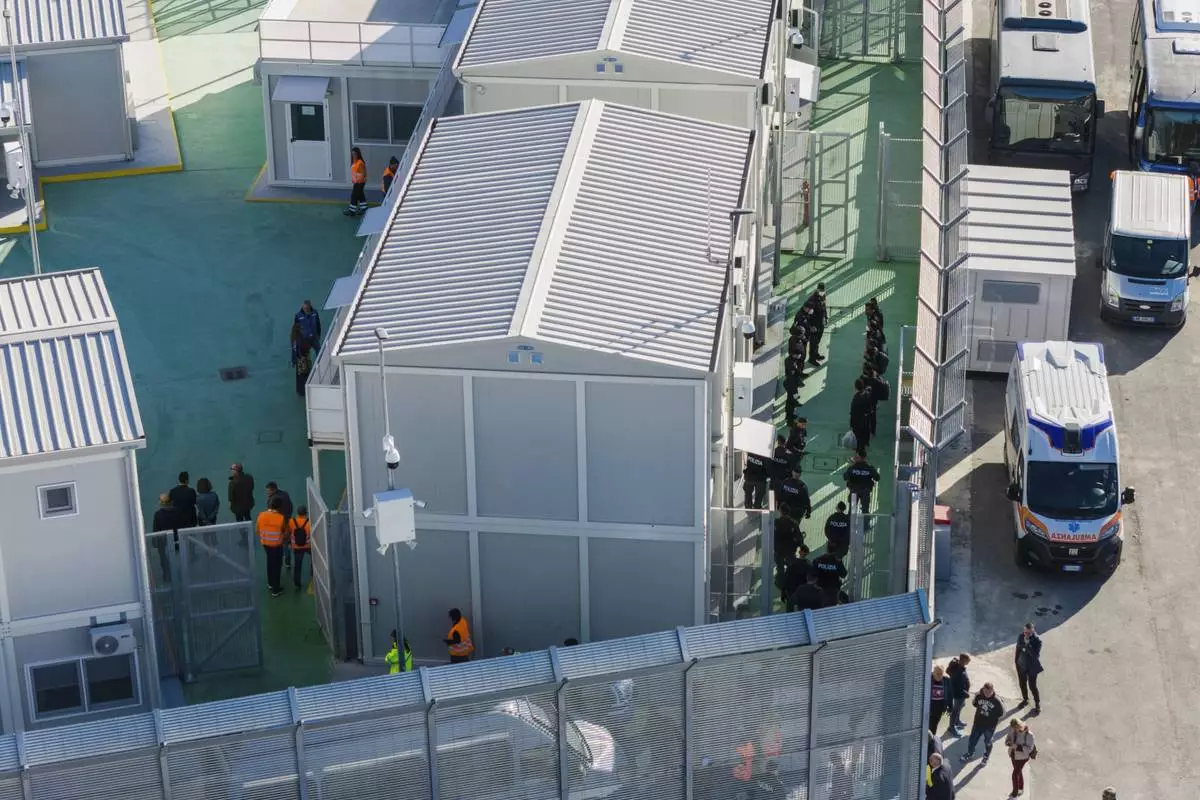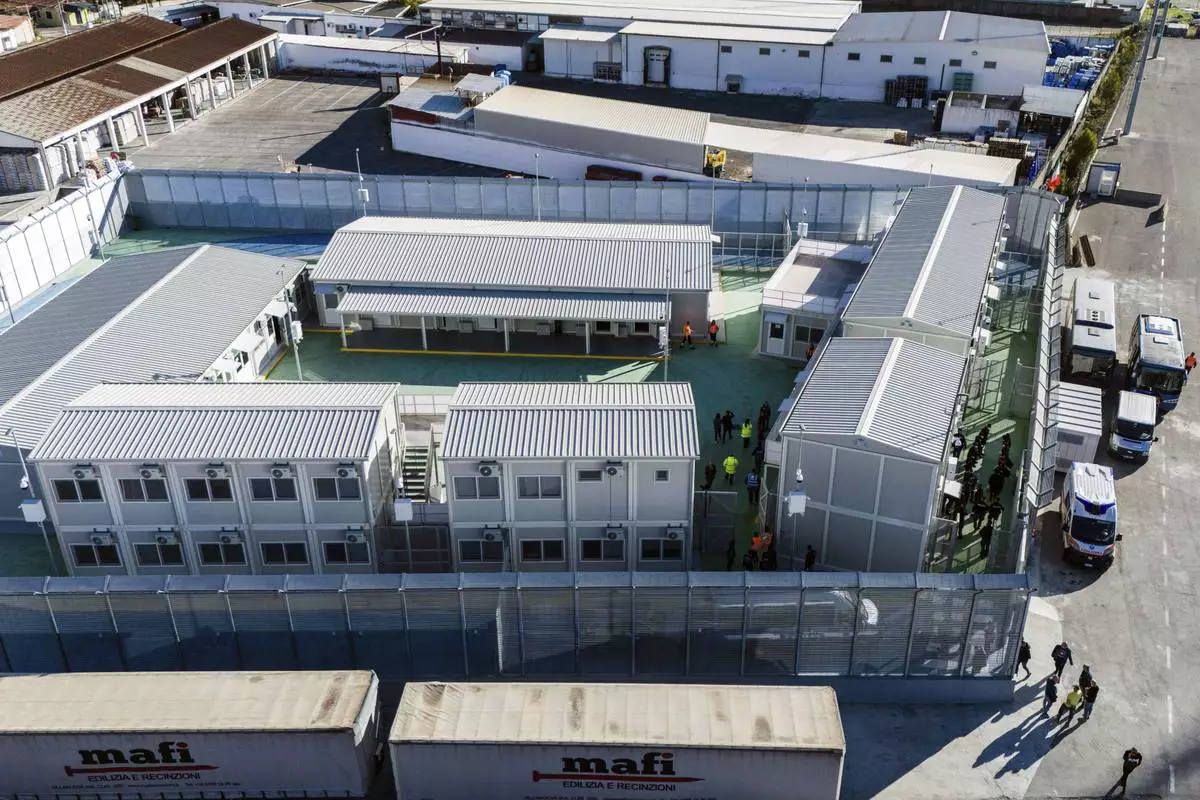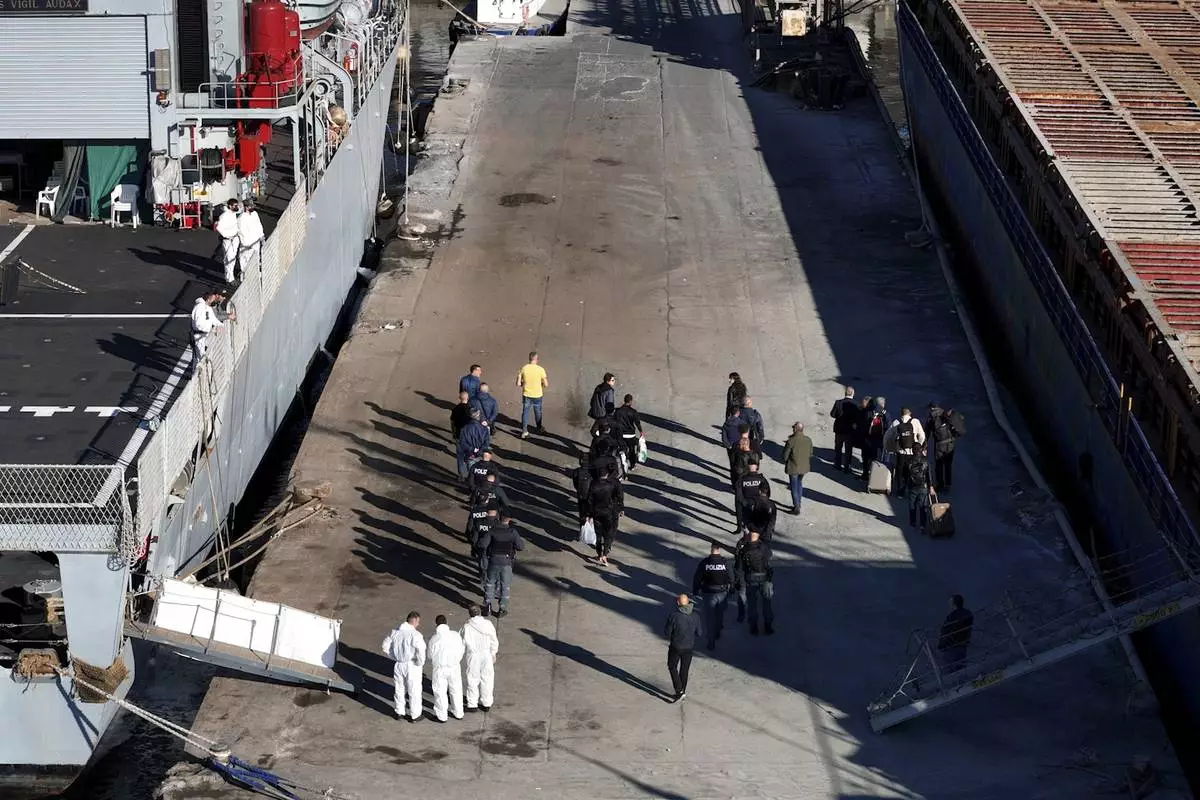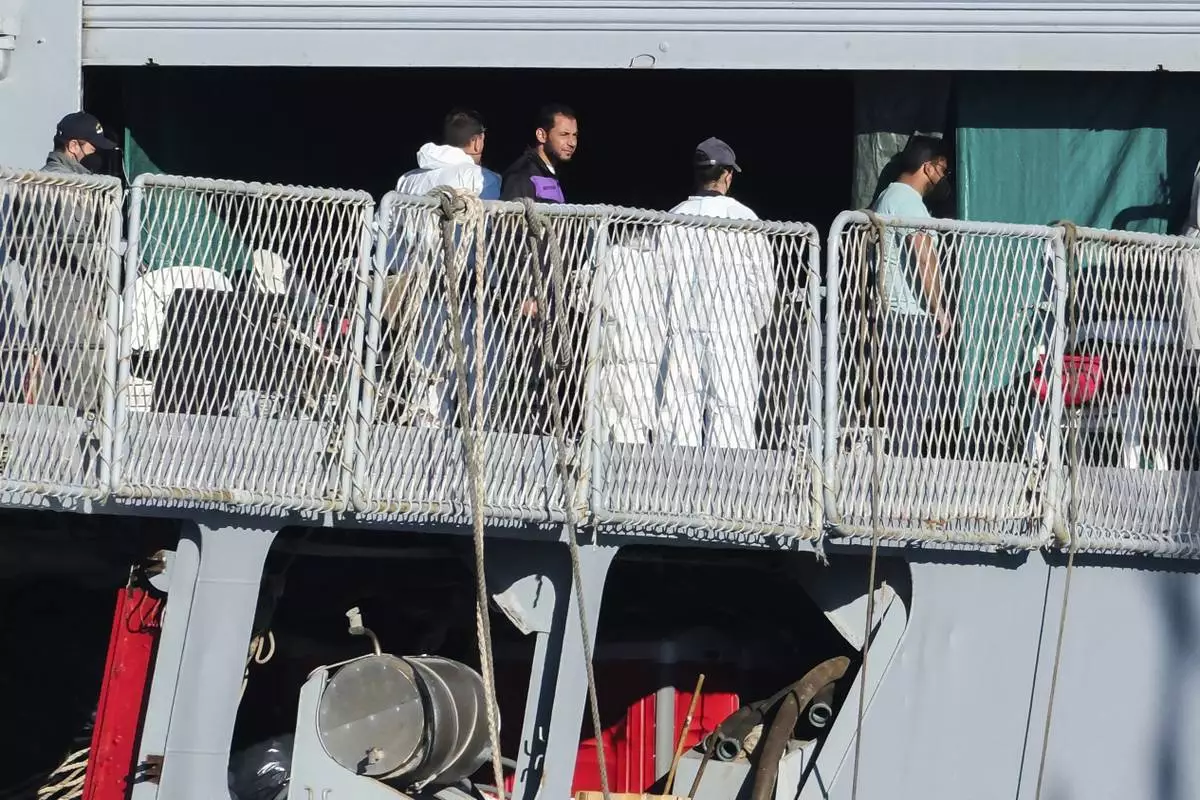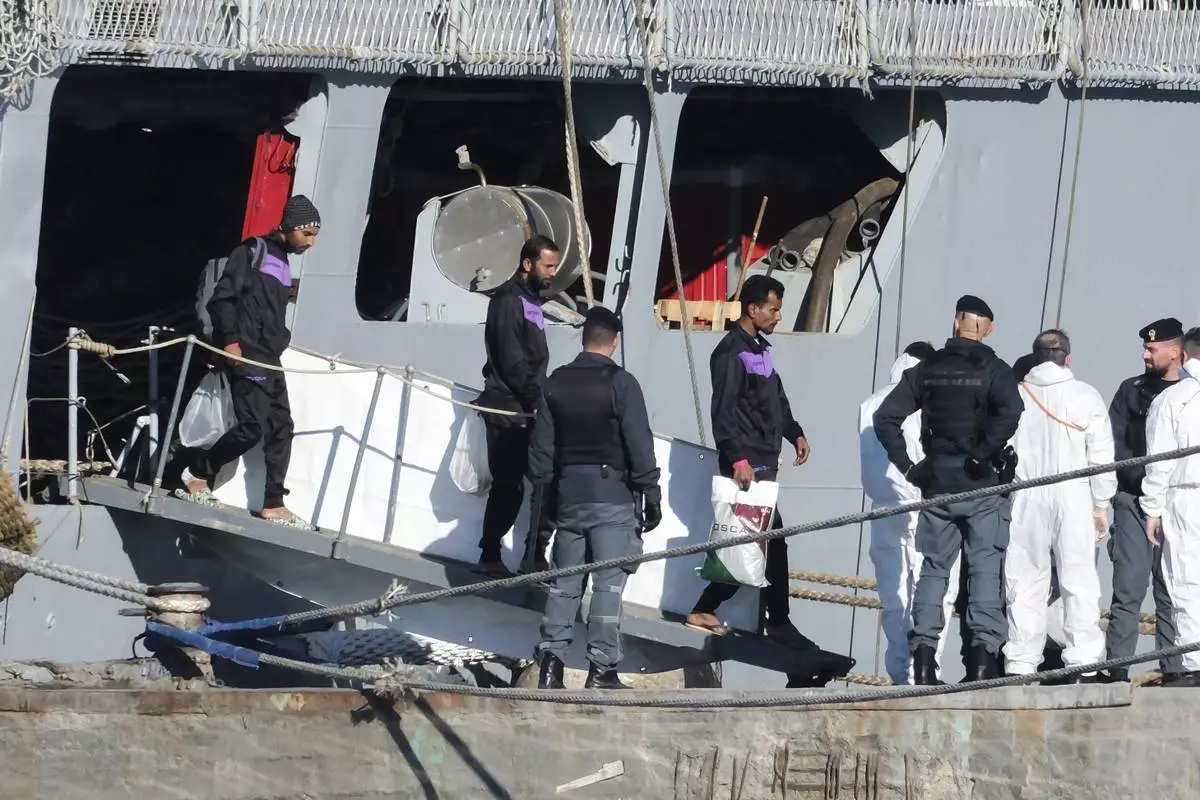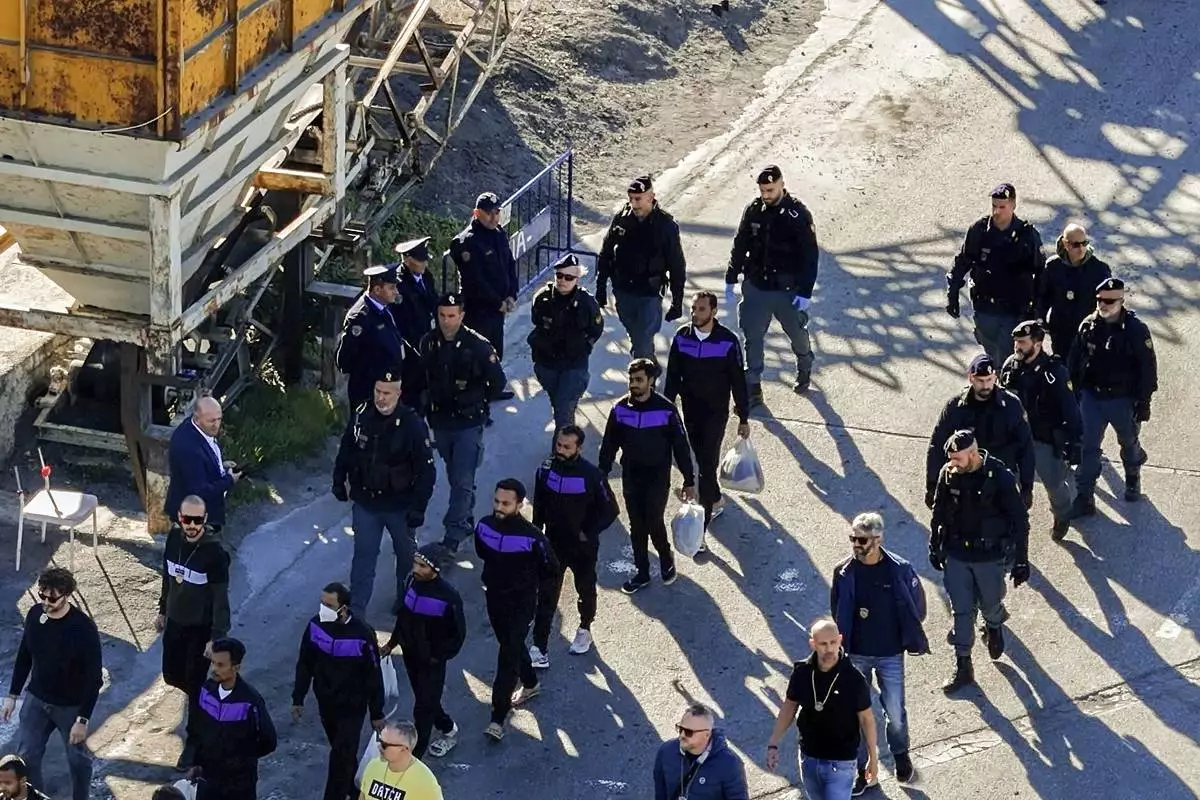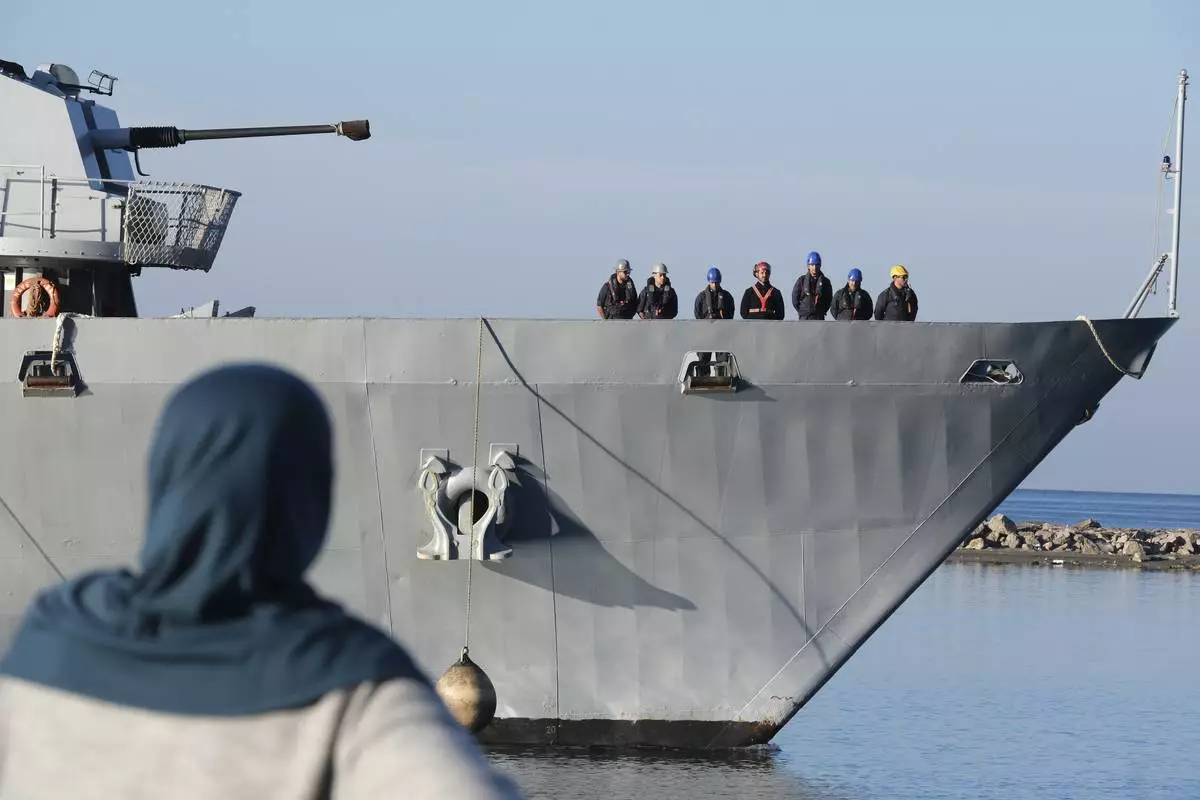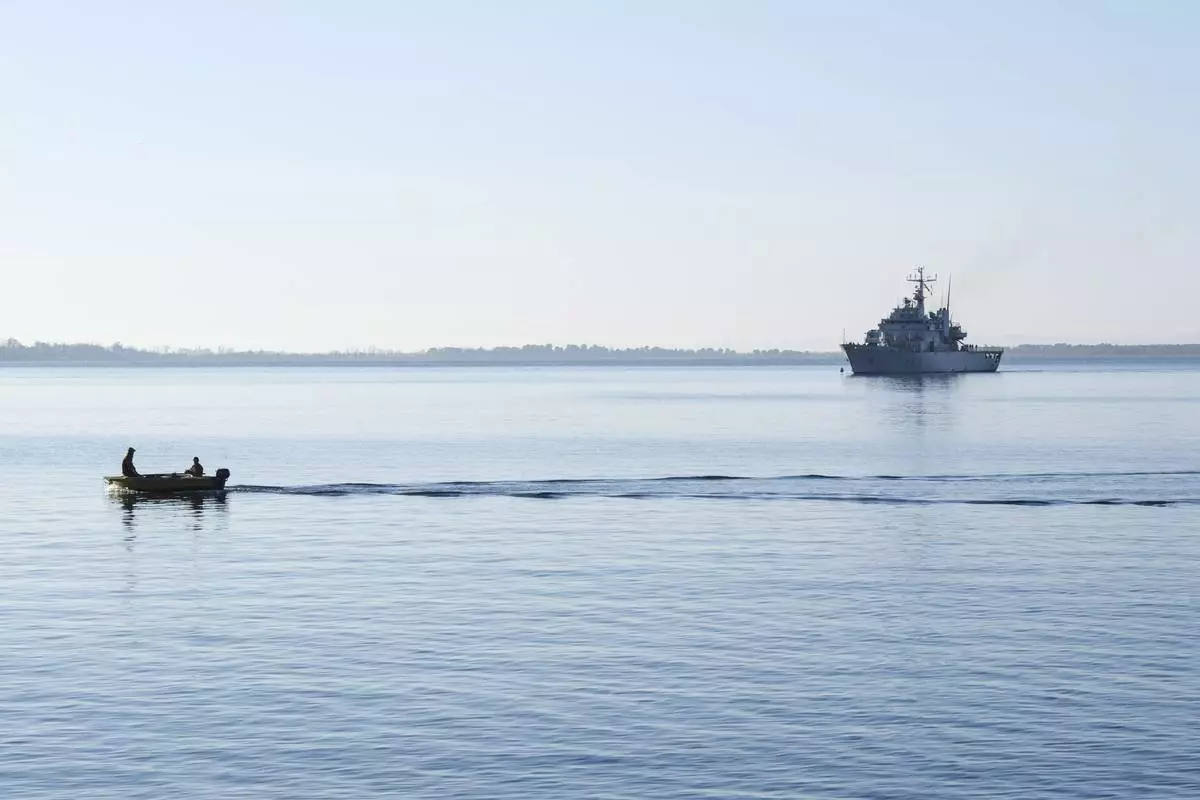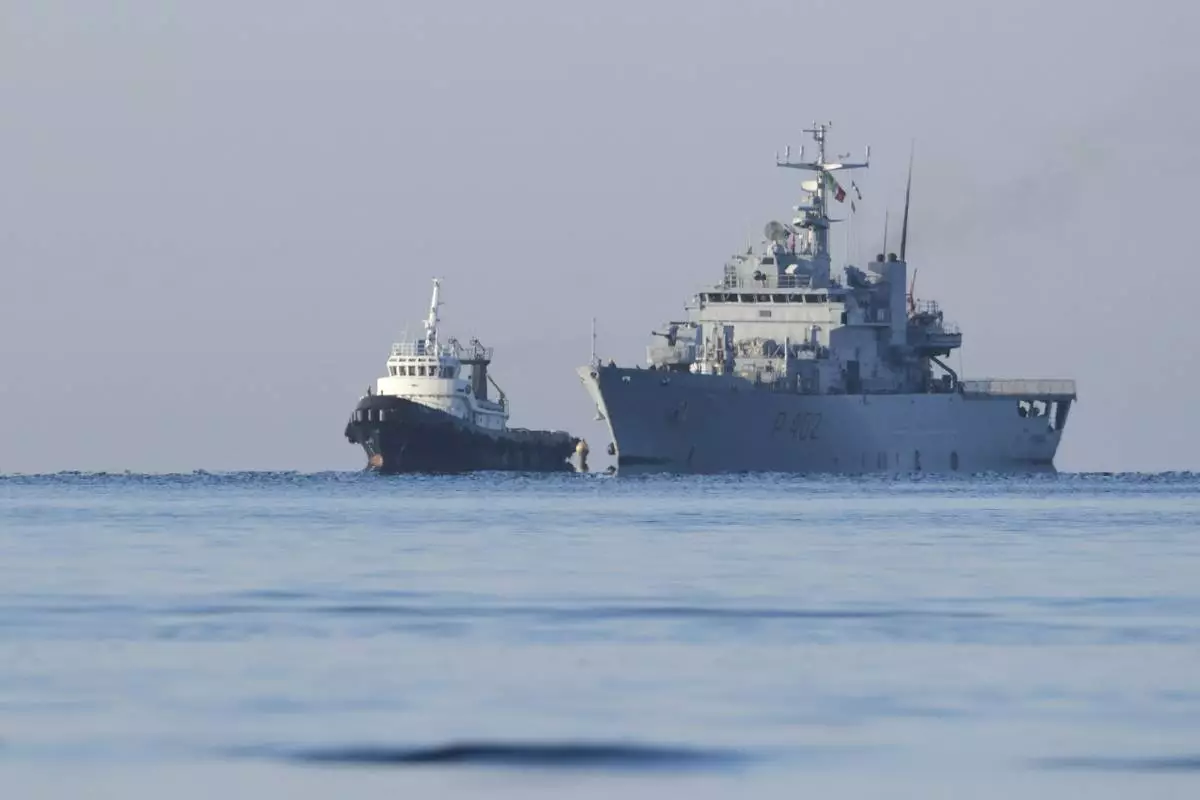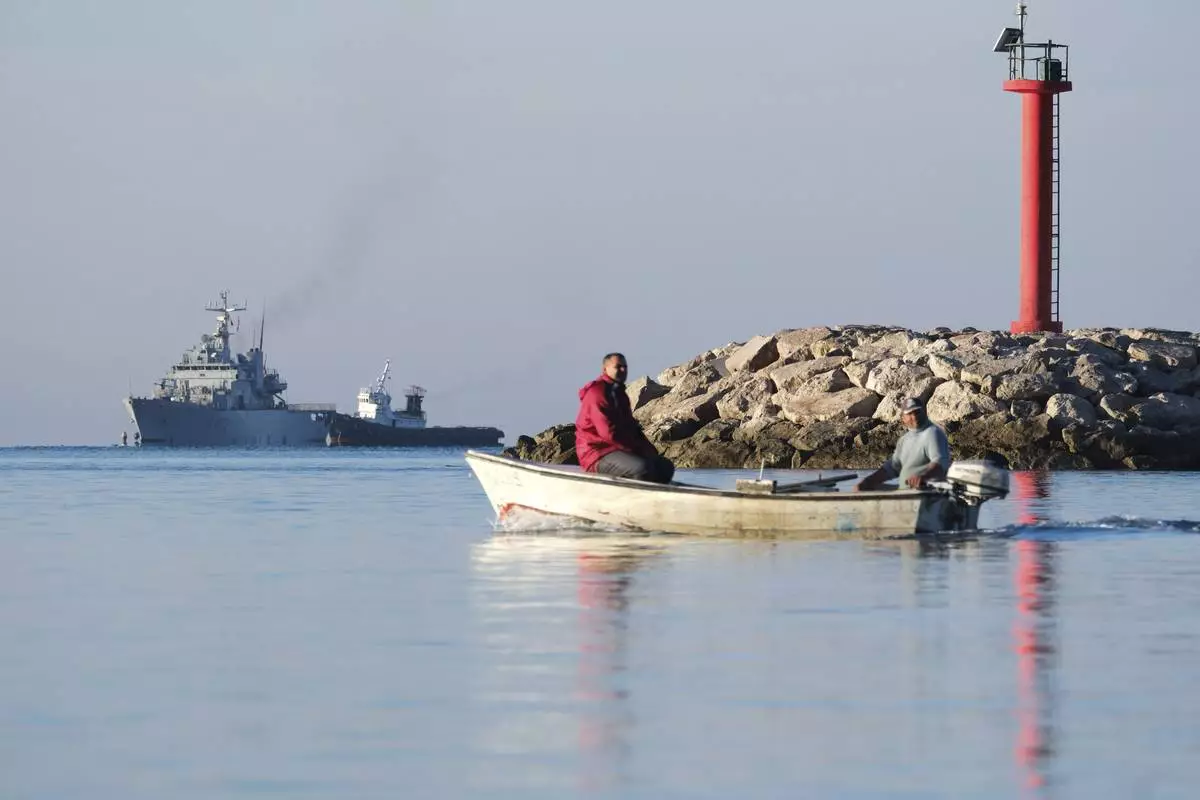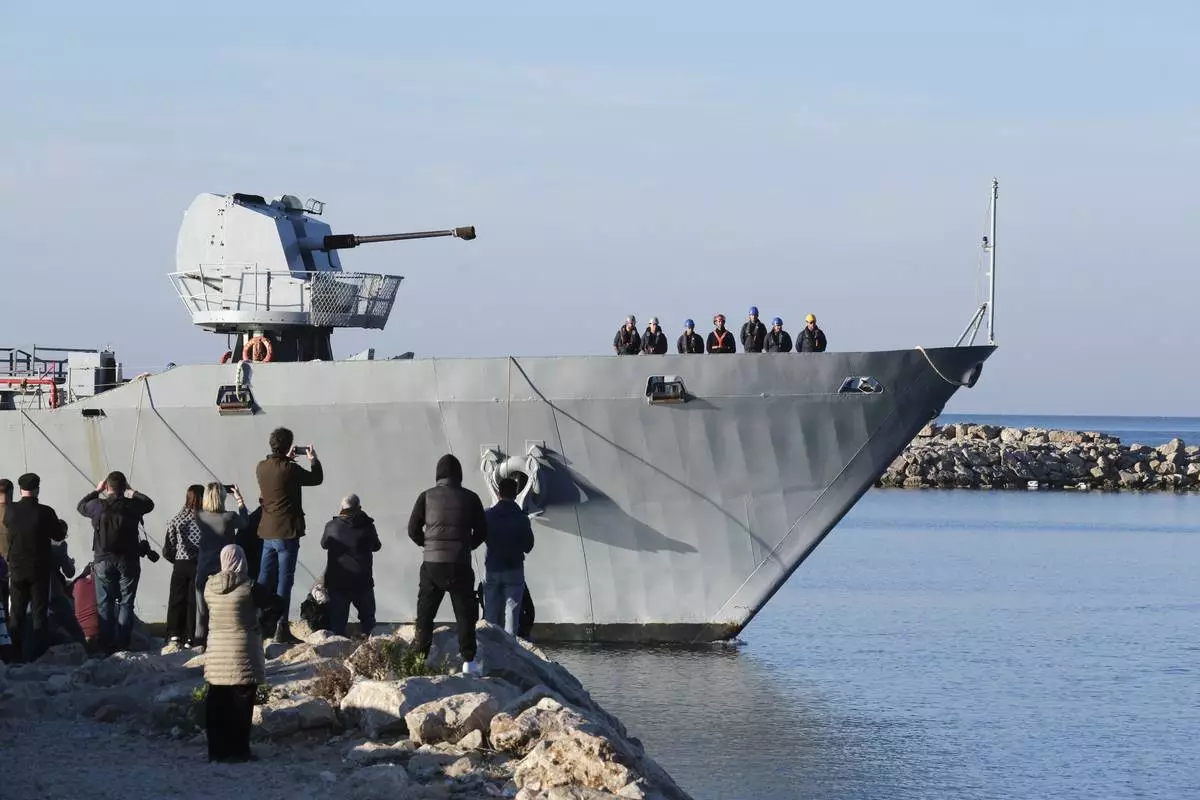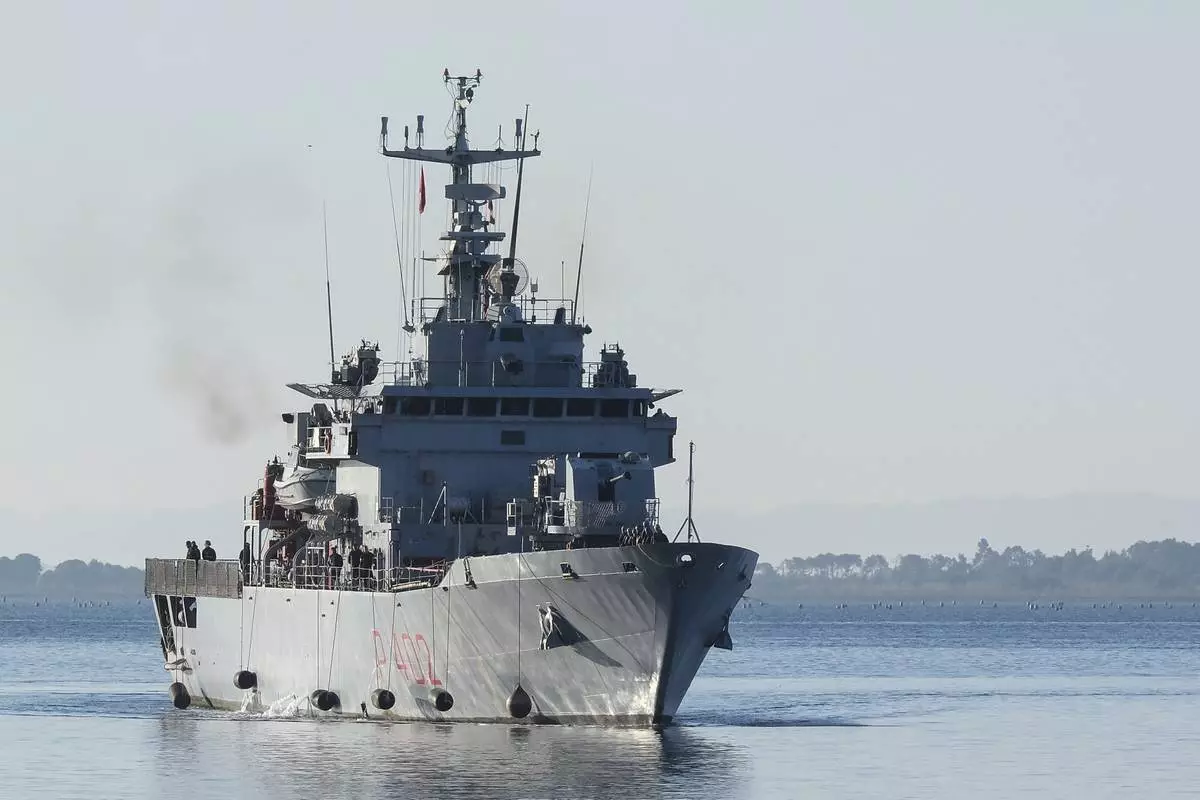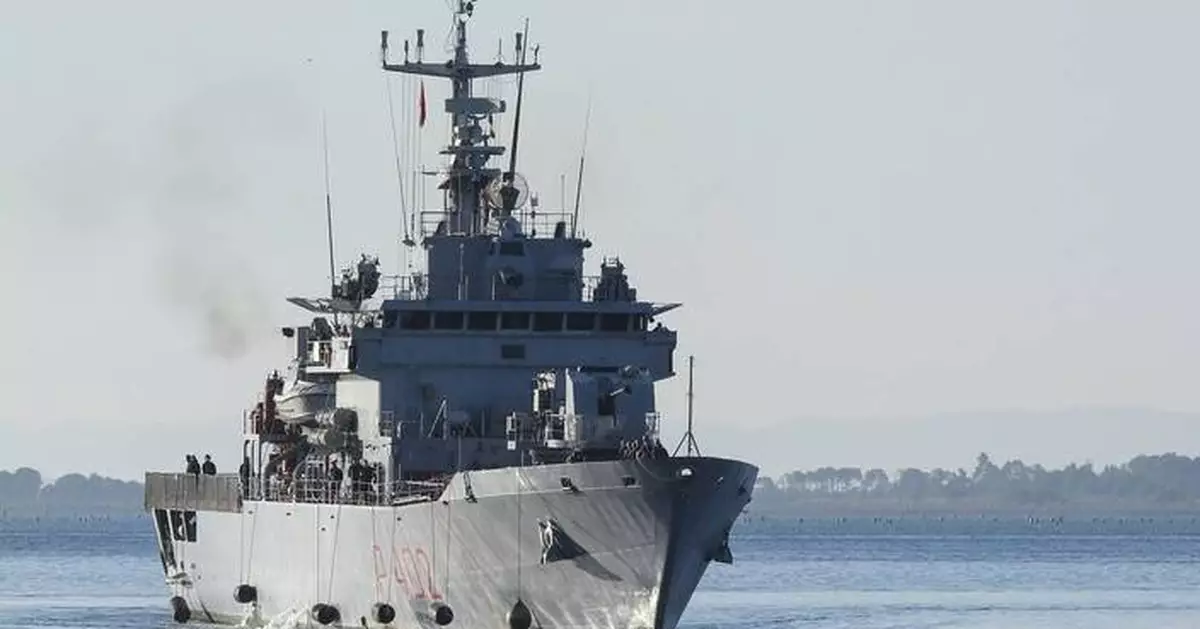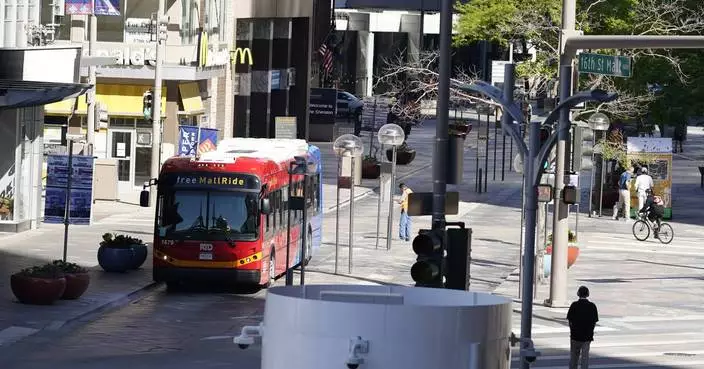More powerful winds were expected to trigger new wildfires that could set back the recent progress made in containing blazes that have destroyed thousands of homes and killed at least 24 people.
Here's the latest:
Metallica’s foundation All Within My Hands will contribute $500,000 to Los Angeles-area wildfire relief, the band announced Monday.
The donations will be sent to the California Community Foundation’s Wildfire Recovery Fund and the Pasadena Community Foundation’s Eaton Canyon Fire Relief and Recovery Fund to aid in their efforts.
Metallica launched the All Within My Hands nonprofit in 2017. It's “dedicated to creating sustainable communities by supporting workforce education, the fight against hunger, and other critical local services,” according to the foundation’s mission statement.
The event is moving forward with its planned 11-day schedule next week in Park City, Utah.
In a letter Monday to registrants from Southern California, the Sundance Institute’s CEO Amanda Kelso and festival director Eugene Hernandez wrote that, “we may mourn, but we also know it is important to carry on.” Those who received the letter were also invited to share more about how they’ve been affected by the fires.
Michelle Satter, a founding director of the Sundance Institute and its artists programs, wrote on social media last week that she lost her home in the Palisades fire. Satter is among those being honored at the festival’s opening gala Jan. 24.
LA County Recovers, a government-run program, posted interactive maps on its website that show homes and other structures that have been damaged.
The maps for the Eaton and Palisades fires allow users to click on an icon and get a description of the type of structure, such as a home or commercial building, and the type of damage, such as “major” or “destroyed.”
Addresses may be entered into a search bar to find a specific location. Users can also see photos of the damaged buildings.
Johnson spoke briefly with reporters at the Capitol on Monday. His response was to a question about whether he was open to providing aid to California without any conditions at all.
Johnson said there has been water resource mismanagement and forest mismanagement in California.
“It does come down to leadership and it appears to us that state and local leaders were derelict in their duty in many respects,” Johnson said.
He said conditions on disaster aid were his personal view and that he hadn't had a chance to “socialize that with any of the members because we’ve all been very busy, but it’ll be part of the discussion for sure.”
A lawsuit filed Monday against Southern California Edison claims the utility’s equipment sparked the deadly Eaton Fire burning just outside Los Angeles and Edison has acknowledged fire agencies are investigating whether its equipment may have started a smaller LA-area fire that broke out the same day.
Edison said in a filing with the California Public Utilities Commission that “a downed conductor was discovered at a tower” near the start of the Hurst Fire that broke out in the Los Angeles neighborhood of Sylmar. But the utility added it “does not know whether the damage observed occurred before or after the start of the fire.” That fire burned more than a square mile and is now mostly contained.
Authorities haven’t determined an official cause for either fire. Wildfires that began last Tuesday amid hurricane-force winds have killed at least 24 people across the Los Angeles area.
▶ Read more about the lawsuit related to the Eaton Fire
The National Weather Service’s Los Angeles page screams “Particularly Dangerous Situation (PDS)” in hot pink letters against a gray background.
It’s a rare warning aimed at seizing attention ahead of extreme wildfire risk that’s predicted to start in southern California at 4 a.m. Tuesday.
PDS warnings were first used to warn of tornado outbreaks in the Midwest. More than a decade ago, three meteorologists proposed expanding their use to disasters such as ice storms, floods, hurricanes and now wildfires.
▶ Read more about PDS warnings
Tim Kang has been evacuated from his home in La Crescenta for nearly a week, despite never officially receiving a mandatory evacuation order.
Kang, who lives with his two brothers, said they woke up around 3 a.m. Wednesday morning and left an hour later once they saw the Eaton fire was moving west at an “alarming rate.”
“It was super apocalyptic,” Kang said. “There was like trash everywhere, trees, shrubbery, huge cloud of black smoke in the background, no power, everything just felt like, ‘Oh man, the world’s ending.’”
They tried going to Highland Park, but the smoke was so bad that Kang developed a bad cough. After spending a few nights in Santa Clarita, he decided to stay with his girlfriend in Pasadena.
“I was mostly irritated by the smell of the smoke,” Kang said. “Started getting body chills, my headache was just really bad for two days, my body chills kind of got worse … I was coughing all throughout.”
They haven’t had running water in the kitchen for a week since his girlfriend’s sink broke right before the fires, and they’ve only been drinking bottled water due to concerns about the water quality in the area. Most of the grocery stores in the area were sold out of bottled water when the city first issued a boil notice so they had to get it from a liquor store.
Anthem Blue Cross says the money that will be handed out by its foundation will help with disaster response and recovery costs.
The president of Anthem Blue Cross Commercial Plans Beth Andersen said that with nearly 7,000 employees in California the company wanted to support the people affected by the fires.
“We want our associates, members, care providers, and communities to know we stand with them,” Andersen said.
And Biden said he and first lady Jill Biden are “deeply sadden by the devastation caused by the unprecedented ongoing” blazes.
Biden said he’d directed hundreds of federal personnel, as well as federal aerial and ground support, to aid in fighting the fires and supporting survivors and hard-hit communities.
“We will continue to use every tool available to support the urgent firefight as the winds are projected to increase,” Biden said, adding that firefighters “represent the best of America.”
The nonprofit fundraising group Broadway Cares/Equity Fights AIDS has awarded $500,000 in emergency grants to help Los Angeles-area residents and first responders with meals, shelter, medical care, clothing and emergency financial assistance.
Broadway Cares has sent $250,000 to the Entertainment Community Fund, $100,000 to the California Fire Foundation Wildfire & Disaster Relief Fund, $100,000 to the Los Angeles Regional Food Bank and $50,000 to longtime Broadway Cares grantee Project Angel Food.
“These wildfires have left deep scars, but they’ve also ignited a powerful wave of support from Broadway to the West Coast,” said Robert E. Wankel, Broadway Cares/Equity Fights AIDS Board of Trustees president and chairman and CEO of The Shubert Organization.
The Oscar nominations are being pushed back almost a week from their original date amid the ongoing California wildfires.
Nominations will now be announced Jan. 23, the Academy of Motion Picture Arts and Sciences said Monday.
With fires still active in the Los Angeles area, the film academy also extended the nominations voting period for its members through Friday.
The 97th Oscars will still happen March 2, at the Dolby Theatre, with a live television broadcast on ABC beginning at 7 p.m. ET and a livestream on Hulu.
▶ Read more about the delay of the Oscar nominations
But officials cautioned that more evacuations could be ordered when high winds return this week.
Additional fires are possible and the wind could spread the ongoing fires, so authorities urged residents to be prepared to evacuate if needed and make a plan for their families.
Also, even after an evacuation order is lifted it still might not be safe to return home because of damaged gas and electric lines and other hazards.
“We’re absolutely better prepared for this coming,” Los Angeles County Fire Chief Anthony Marrone said when asked what will be different this time with similarly strong winds forecast as last week which fueled the massive fires.
More than 5,000 firefighters are battling the Palisades fire and more than 3,000 are working on the Eaton fire.
The state has also set up a mobilization area where resources are staged to be ready to respond to any new fires.
Marrone said he also has more firefighting aircraft on hand to help, but they could be grounded if the winds get too strong. When that happened last week, the fires spread quickly.
Marrone said he can’t be confident they’ll be able to contain every new fire, so it’s important that residents are ready to evacuate if they’re ordered to leave their homes.
Los Angeles Mayor Karen Bass said the city is preparing to deal with another round of extreme wind.
At the same time, city officials are helping residents start to recover from losing their homes by opening centers to help them apply for replacement birth certificates and drivers licenses and other documents. Businesses are also being encouraged to apply for disaster relief loans.
The city set up a website to help people as they start picking up the pieces of their lives at recovery.lacounty.gov.
Los Angeles County District Attorney Nathan Hochman said they’re starting to see criminals emerge.
Nearly three dozen people have been arrested for looting since the fires began last week.
Hochman added that price gauging has been happening with hotels and short-term rentals and medical supplies. Scammers are also contacting people for fake GoFundMe efforts, though he said the official organization has done a good job of putting protections against this in place and recommended making such donations through that site.
“The criminals have decided that this is an opportunity and I’m here to tell you this is not an opportunity. You will be arrested,” Hochman said.
At least 24 people have died in the fires, but more victims continue to be found.
Authorities have resumed sifting through the rubble near Altadena for the third day.
“It is a very grim task. And we, unfortunately every day we’re doing this, we’re running across the remains of individual community members,” Los Angeles County Sheriff Robert Luna said.
At least 23 people are missing in the fires.
“I believe we will continue to find remains,” Luna said, asking people for patience, adding that many are saying ”‘I just want to go look at my house and I want to see what’s left.’ We know that but we have people literally looking for the remains of your neighbors.”
Other fire departments have sent equipment and firefighters to help battle the devastating blazes. Hundreds of National Guard troops are also helping.
Los Angeles County Fire Chief Anthony Marrone said his department has not turned down any offers for help since the fires began.
Los Angeles City Fire Chief Kristin Crowley said she’s grateful for all the first responders who are helping.
“We absolutely know that we cannot do this on our own,” she said.
Los Angeles County Fire Chief Anthony Marrone said he expects that plane to be flying again Tuesday to help battle the fires if the Federal Aviation Administration approves the repairs.
Aerial firefighting has been crucial in the fight against the fires.
The fires spread quickly last week when firefighting planes and helicopters were grounded because of high winds.
But with more strong winds in the forecast, the threat remains critical. The anticipated winds, low humidity and dry conditions will keep the fire risk high.
“Please be assured that all fire departments and all law enforcement agencies in the area will be prepared,” LA County Fire Chief Anthony Marrone said.
Officials have pre-positioned fire engines throughout the city so they’ll be ready to respond to any new fires and firefighters are patrolling high risk areas.
“We are not in the clear as of yet and we must not let our guard down,” LA Fire Chief Kristin Crowley said during the Monday news conference.
That’s according to LA County Fire Chief Anthony Marrone, who was speaking at a news conference Monday morning.
Beyoncé has contributed $2.5 million to a newly launched LA Fire Relief Fund created by her charitable foundation, BeyGOOD.
The announcement was posted on the BeyGOOD foundation Instagram account Sunday.
“The fund is earmarked to aid families in the Altadena/Pasadena area who lost their homes, and to churches and community centers to address the immediate needs of those affected by the wildfires,” the caption read.
Founded in 2013, the BeyGOOD foundation concentrates on economic equity, by “supporting marginalized and under-resourced programs,” according to its mission statement.
Last week, Beyoncé’s mother Tina Knowles shared that her Malibu bungalow was destroyed in the Los Angeles-area fires.
“It was my favorite place, my sanctuary, my sacred happy place. now it is gone,” she wrote on Instagram. “God Bless all the brave men and women in our fire department who risked their lives in dangerous conditions.”
It’s impossible to know exactly how much damage the fires have caused at this point, but it appears they could be one of the costliest natural disasters ever in the country.
No official estimates have been released, but AccuWeather, a private company that provides data on weather and its impact, said Sunday night that it believes the fires have now caused more than $250 billion damage. And the fires continue to burn.
By comparison, AccuWeather estimated the damage and economic losses caused by Hurricane Helene, which tore across six southeastern states last fall, at $225 billion to $250 billion. It could take several months for officials to develop any kind of official estimate of how much damage the fires caused.
Accuweather has increased its damage estimate several times since last week as more structures continue to burn.
The sight of celebrity mansions and movie landmarks reduced to ashes can make it seem like the wildfires roaring through the Los Angeles area affected a constellation of movie stars.
But a drive through the charred neighborhoods around Altadena shows that the fires also burned through a remarkable haven for generations of Black families avoiding discriminatory housing practices elsewhere. They have been communities of racial and economic diversity, where many people own their own homes.
Some now fear the most destructive fires in California’s history have altered that for good. Recovery and rebuilding may be out of reach for many, and pressures of gentrification could be renewed.
▶ Read more about the lasting effects of the wildfires
But that could change in the next couple days when strong Santa Ana winds are forecast to return.
Pedro Pizarro, the president and CEO of Edison International, told “Good Morning America” his utility has warned some 450,000 customers that their power could be shut off to help keep utility lines from sparking any additional wildfires. Pizarro said the utility hasn’t been able to determine if its equipment and lines played any role in igniting the devastating wildfires that have destroyed more than 12,000 structures throughout the Los Angeles area.
Looting continued to be a concern, with authorities reporting more arrests as the devastation grew. Those arrested included two people who posed as firefighters going into houses, Los Angeles Police Department Capt. Michael Lorenz said.
With California National Guard troops on hand to guard properties, Gov. Gavin Newsom posted on X: “California will NOT allow for looting.”
While the fires have reduced a number of celebrity mansions and movie landmarks to ashes, they also burned through a haven in Altadena for generations of Black families avoiding discriminatory housing practices elsewhere. They have been communities of racial and economic diversity, where many people own their own homes.
The fires have destroyed several places of worship, including a mosque, a synagogue, a Catholic parish and a half-dozen Protestant churches.
A father-daughter team in the Los Angeles area are staying in their home behind the fire barricades and taking inventory of destroyed properties.
Vanessa Prata and her parents had packed up to leave their home in Altadena. Instead, the Pratas have remained in their family home of 27 years, which is somehow still standing, even as homes just over a block away burned.
And as residents who did flee are kept away by police or military barricades, Prata and her dad have taken it upon themselves to check on their neighbors’ homes.
On Friday, they posted to an Altadena community group on Facebook to say they were willing to take the addresses of people who had evacuated their homes and check on their property.
Vanessa and her father, Aluizio Prata, visited more than two dozen homes Friday and Saturday. Fewer than half are still standing.
▶ Read more about this father-daughter duo
Investigators are considering an array of possible ignition sources for the huge fires that have killed at least 24 people and destroyed thousands of homes and businesses in the Los Angeles area.
In the Pacific Palisades, officials have placed the origin of the wind-whipped blaze behind a home on Piedra Morada Drive, which sits above a densely wooded arroyo.
According to the National Fire Protection Association, lightning is the most common cause of fires in the U.S., but investigators were able to rule that out quickly. There were no reports of lightning in the Palisades area or the terrain around the Eaton Fire, which started in east Los Angeles County and has destroyed hundreds of homes.
The next two most common causes: fires intentionally set, and those sparked by utility lines.
John Lentini, owner of Scientific Fire Analysis in Florida, who has investigated large fires in California including the Oakland Hills Fire in 1991, said the size and scope of the blaze don’t change the approach to finding out what caused it.
▶ Read more about the investigation into the cause of the wildfires
Crews from California and nine other states are part of the ongoing response that includes nearly 1,400 fire engines, 84 aircraft and more than 14,000 personnel, including newly arrived firefighters from Mexico.
After a fierce battle Saturday, firefighters managed to fight back flames in Mandeville Canyon, home to Arnold Schwarzenegger and other celebrities near Pacific Palisades not far from the coast, where swooping helicopters dumped water as the blaze charged downhill.
Several projects and awards shows have been delayed, with the Producers Guild opting not to announce its nominations Sunday due to the ongoing effects of the fire. Meghan, the Duchess of Sussex, also announced she wouldn't launch a Netflix lifestyles program until March.
The publisher of composer Arnold Schoenberg’s works says original manuscripts and scores were lost in the Los Angeles wildfires.
“We have lost our full inventory of sales and rental materials,” the company said in a statement. “We hope that in the near future we will be able to ‘rise from the ashes’ in a completely digital form. … There are some scores and performing materials for which we have digital scans.”
Meanwhile, The Screen Actors Guild has joined the Walt Disney Co., the Grammys and other entertainment entities pledging millions in relief to help those affected by the fires.
▶ Read more about how the fires are affecting the entertainment world
After making some progress battling wildfires that destroyed thousands of homes and killed at least 24 people in the Los Angeles area, firefighters prepared for a return of dangerous winds that could again stoke the flames.
The relative calm Sunday allowed some people to return to previously evacuated areas. But even as containment increased in the worst of the fires, more bad news emerged from the ashes: The death toll surged late Sunday with an update from the Los Angeles County medical examiner. At least 16 people were missing, a number authorities said was also likely to rise.
▶ Read more about the latest on the wildfires
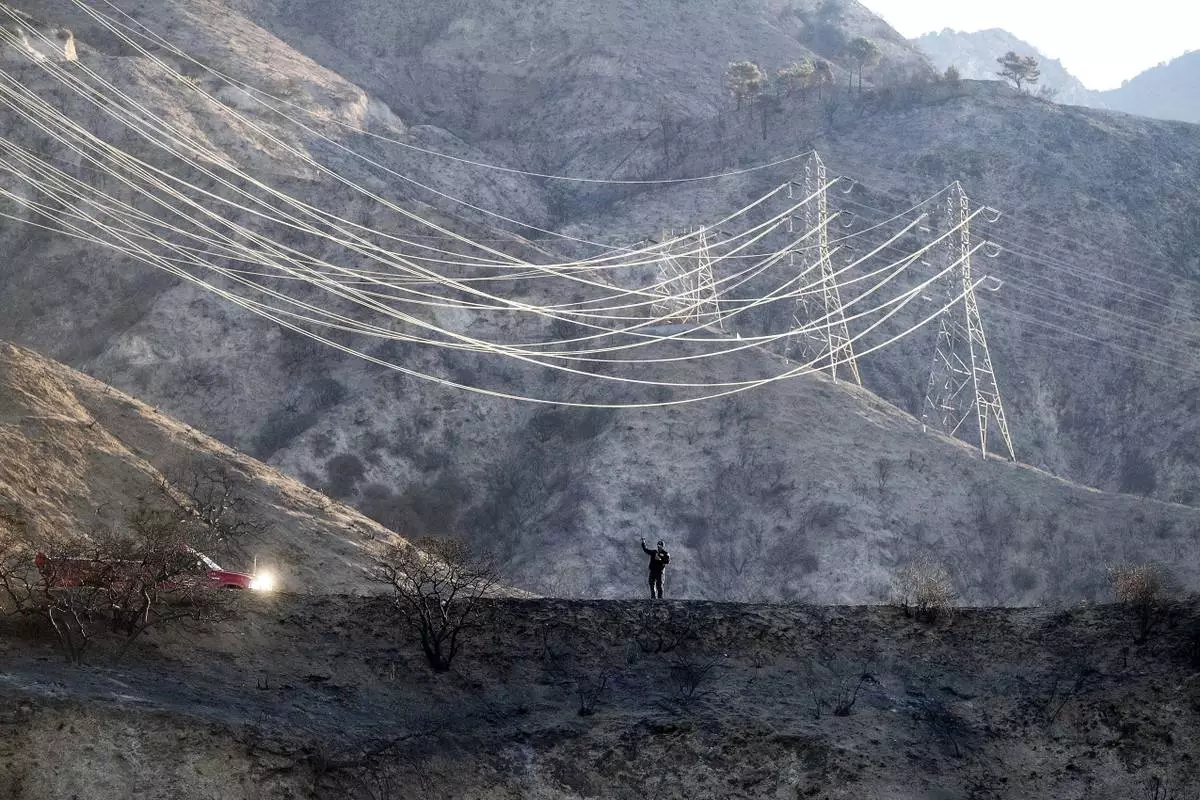
A firefighter takes weather readings while standing on a scorched ridgetop above the Eaton Fire in Angeles National Forest on Monday, Jan. 13, 2025. (AP Photo/Noah Berger)
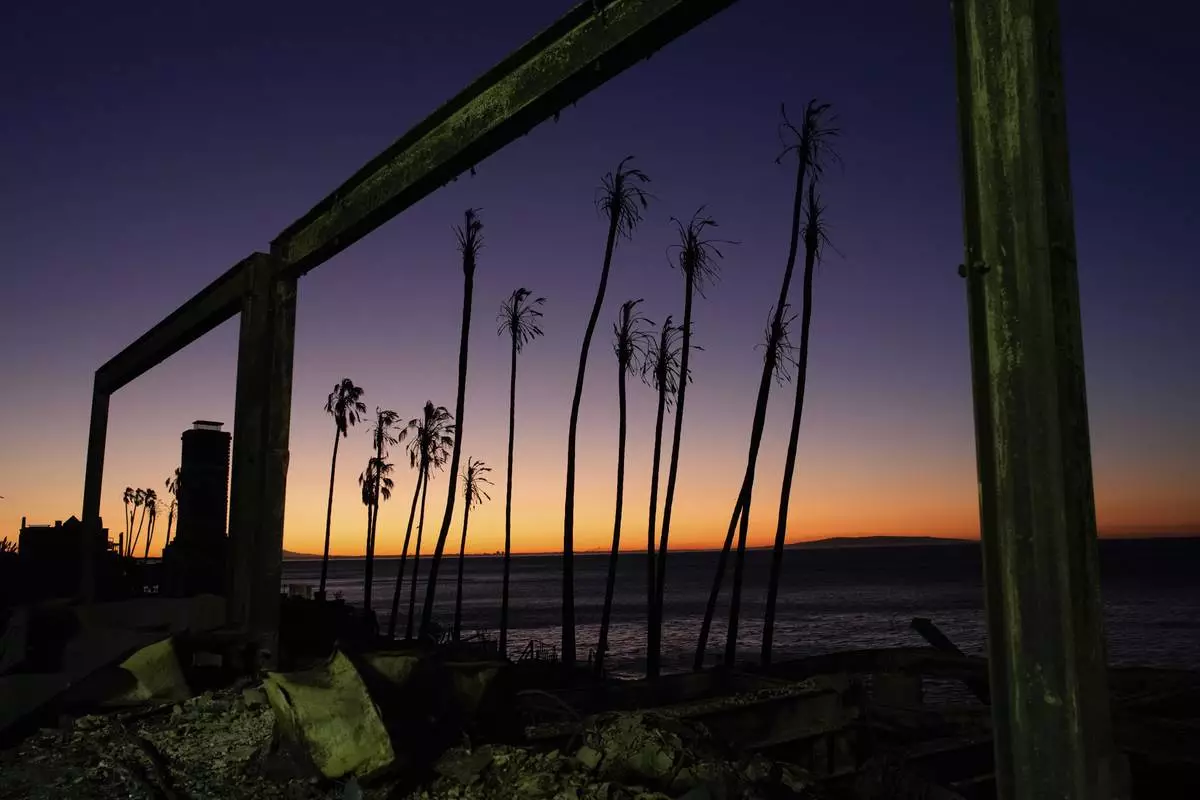
The sun rises behind a fire-ravaged beachfront property in the aftermath of the Palisades Fire Monday, Jan. 13, 2025 in Malibu, Calif. (AP Photo/John Locher)
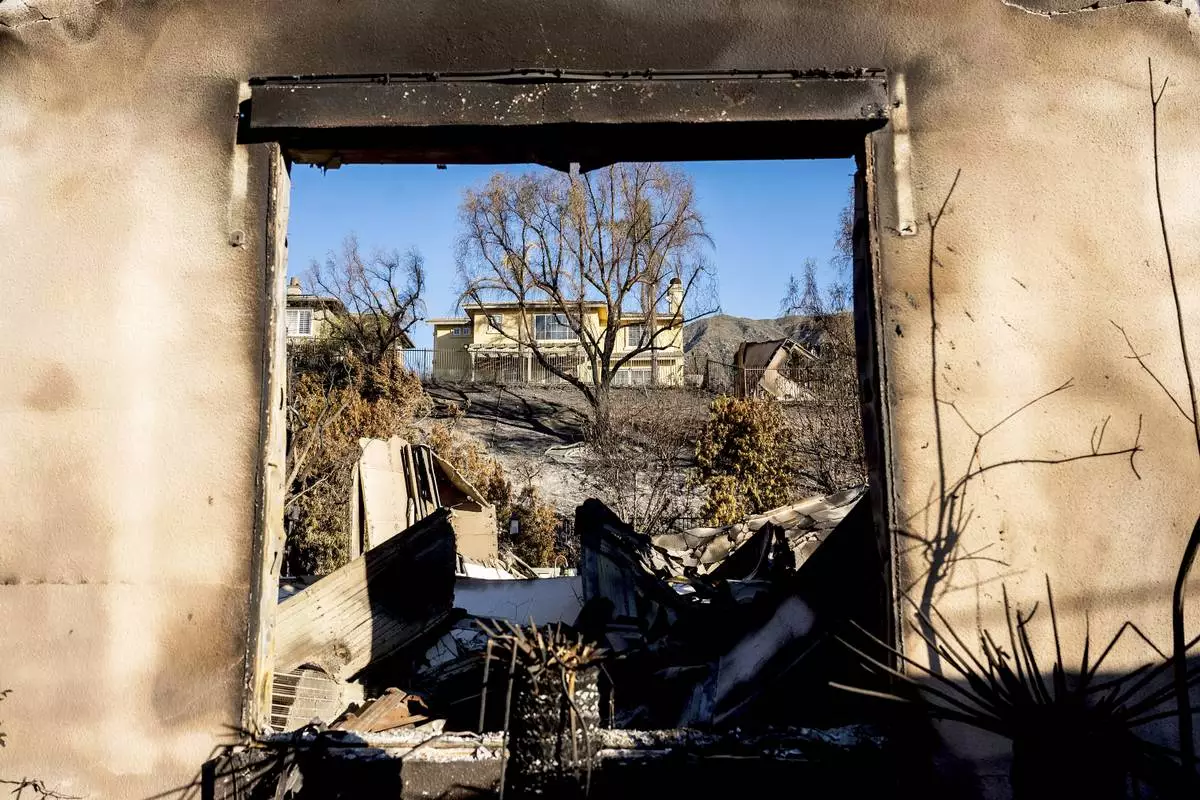
A home destroyed by the Eaton Fire stands in front a home that survived in Altadena. Calif., on Monday, Jan. 13, 2025. (AP Photo/Noah Berger)
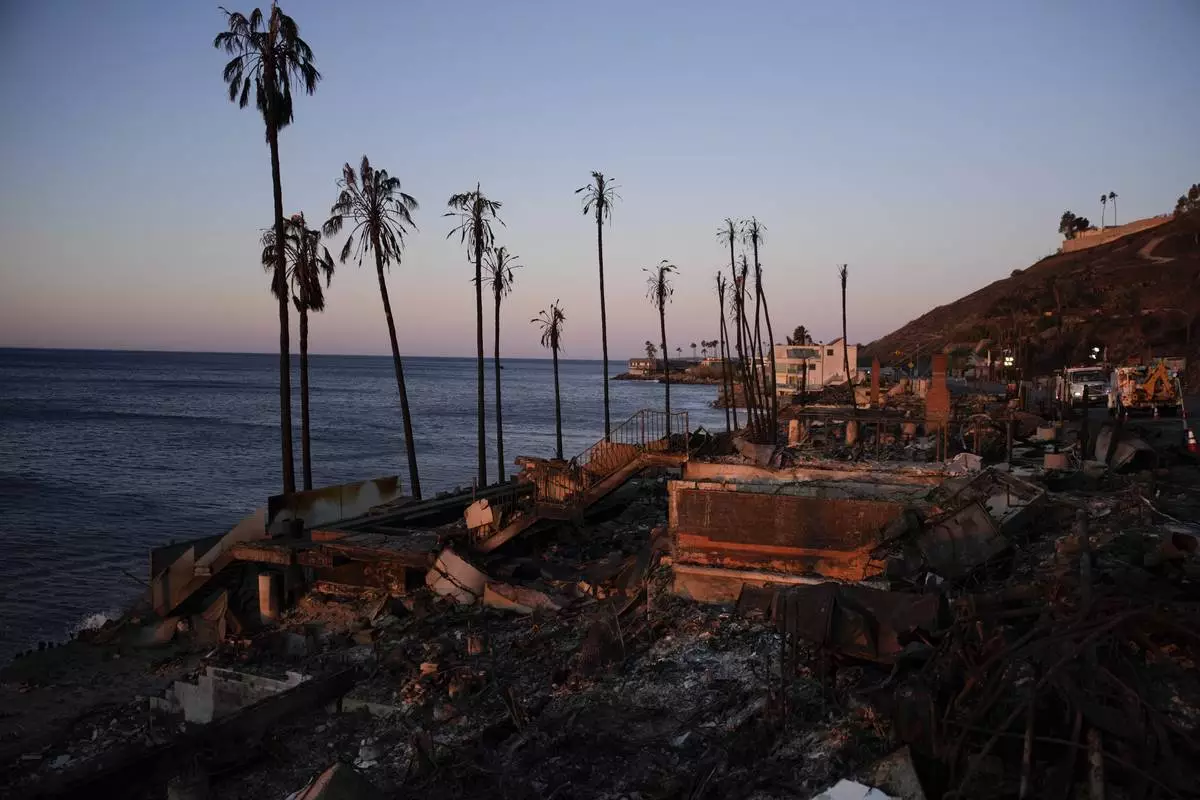
Homes along the Pacific coast are burned to the ground in the aftermath of the Palisades Fire Monday, Jan. 13, 2025 in Malibu, Calif. (AP Photo/John Locher)
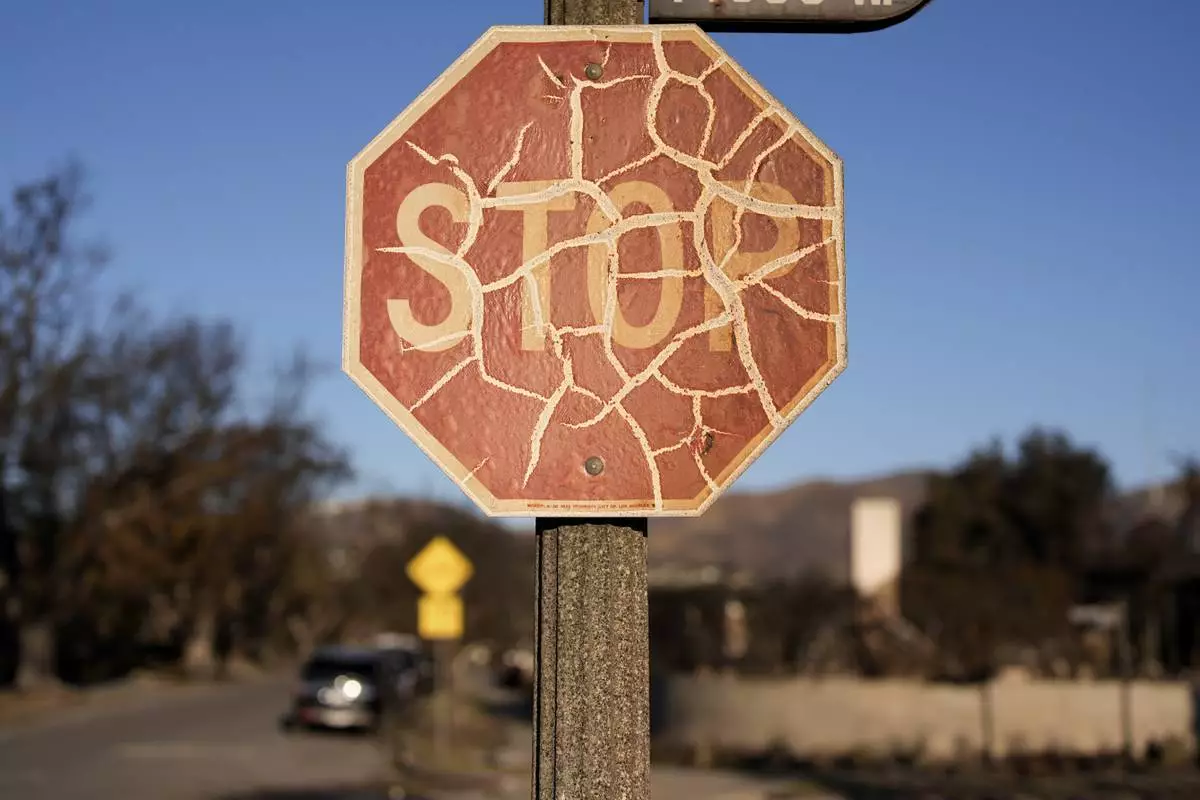
A stop sign is damaged in the aftermath of the Palisades Fire in the Pacific Palisades neighborhood of Los Angeles, Monday, Jan. 13, 2025. (AP Photo/John Locher)
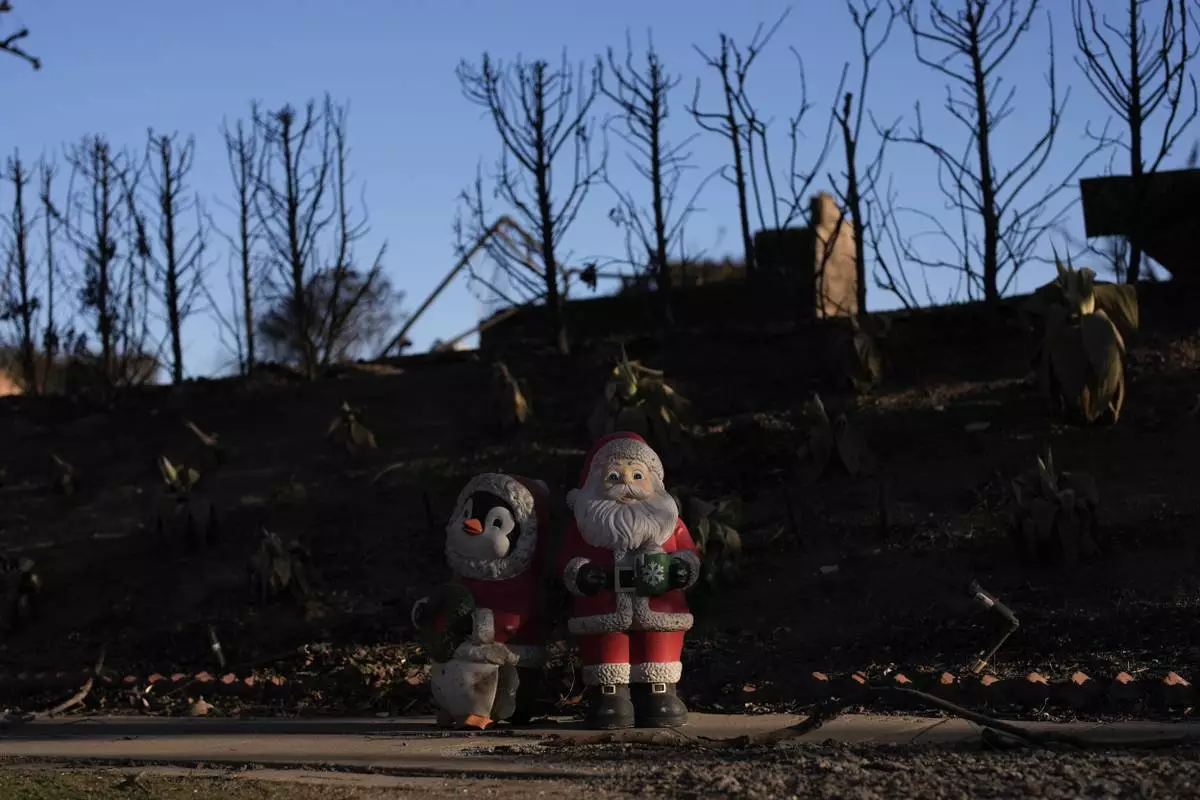
Christmas decorations are left standing in a fire-ravaged community in the aftermath of the Palisades Fire in the Pacific Palisades neighborhood of Los Angeles, Monday, Jan. 13, 2025. (AP Photo/John Locher)
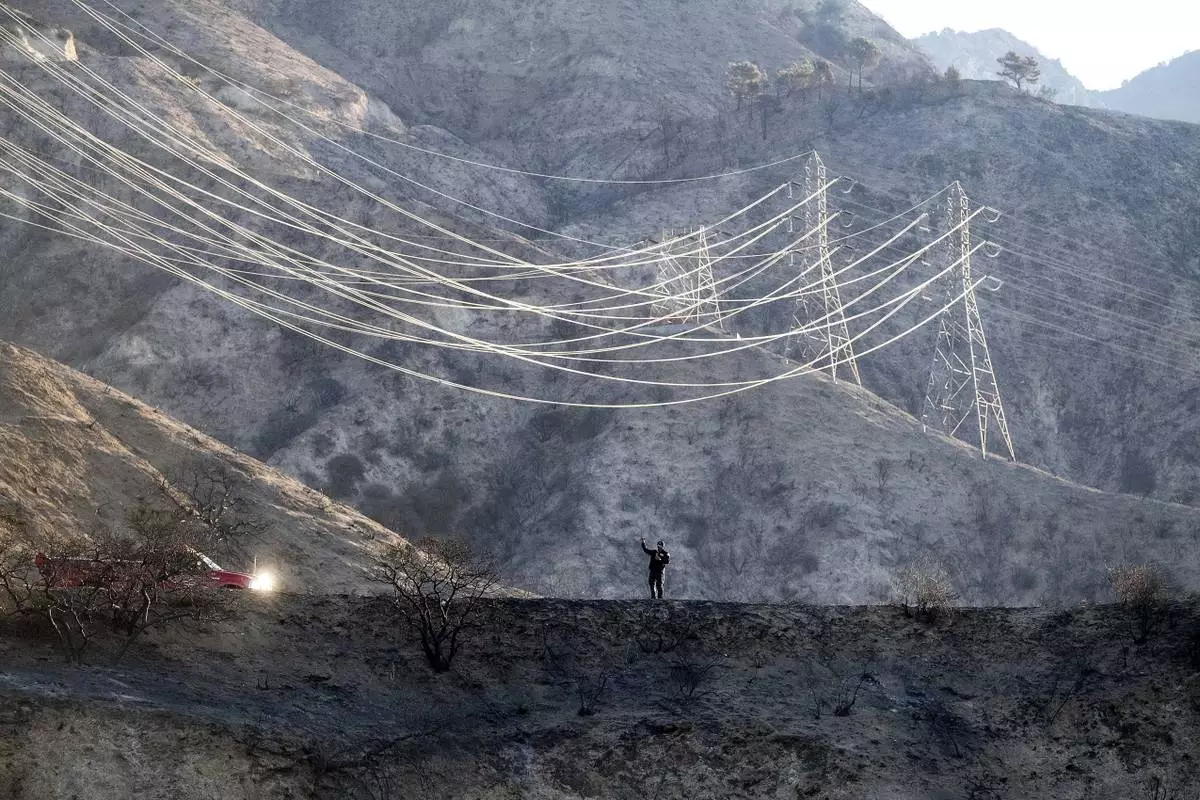
A firefighter takes weather readings while standing on a scorched ridgetop above the Eaton Fire in Angeles National Forest on Monday, Jan. 13, 2025. (AP Photo/Noah Berger)
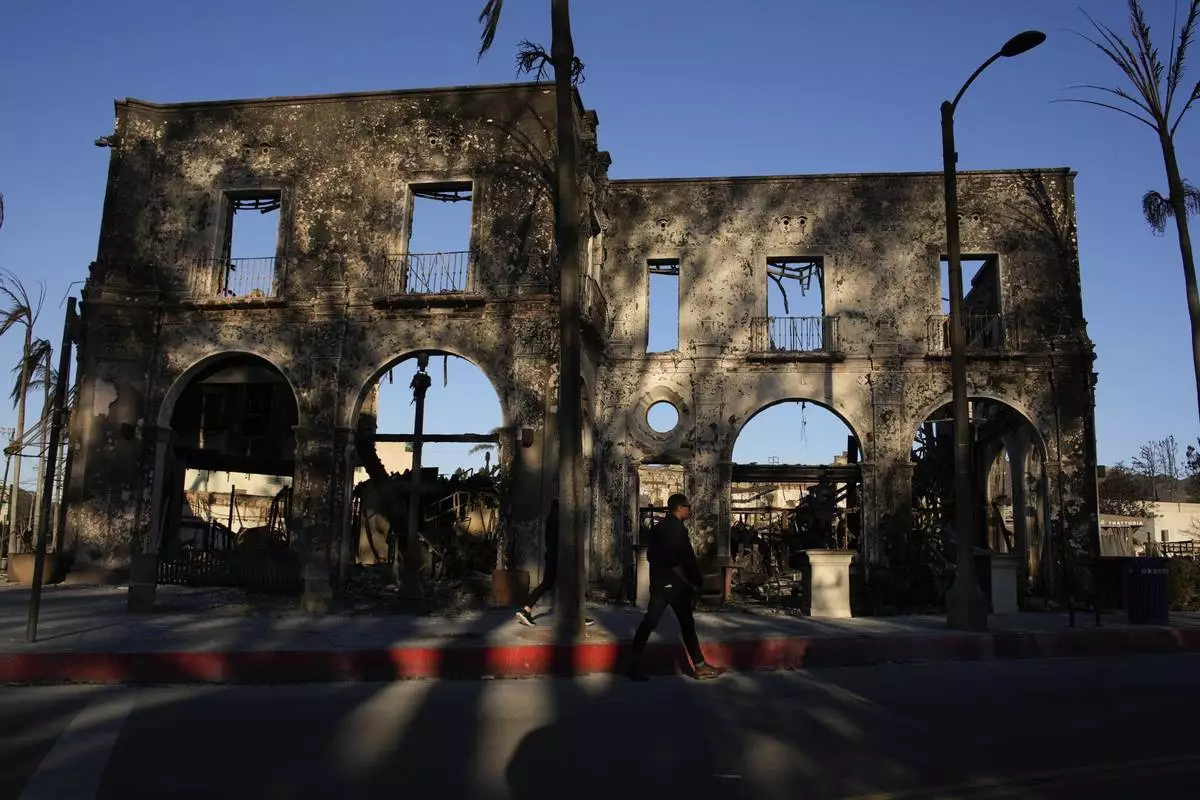
The front face of a building is all that is left standing in the aftermath of the Palisades Fire in the Pacific Palisades neighborhood of Los Angeles, Monday, Jan. 13, 2025. (AP Photo/John Locher)
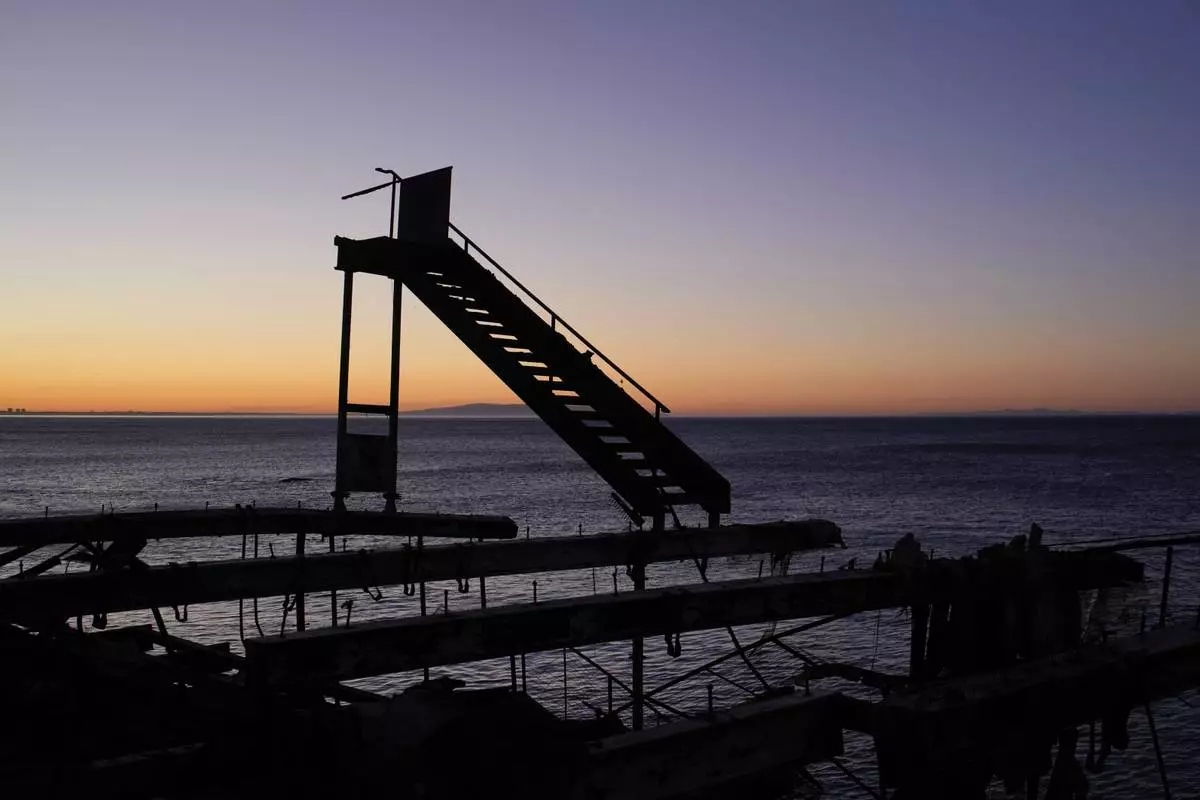
The sun rises behind a fire-ravaged beachfront property in the aftermath of the Palisades Fire Monday, Jan. 13, 2025 in Malibu, Calif. (AP Photo/John Locher)
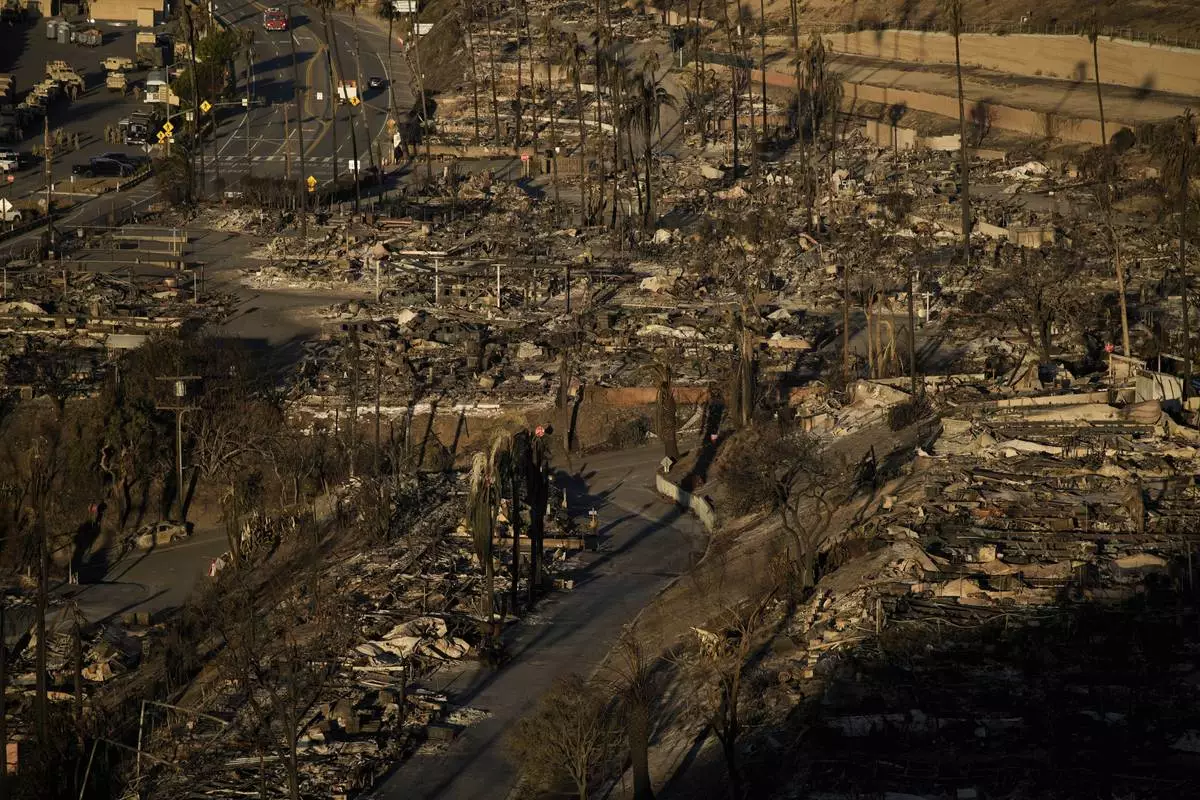
The Palisades Fire leaves total devastation in the Pacific Palisades neighborhood of Los Angeles, Monday, Jan. 13, 2025. (AP Photo/John Locher)
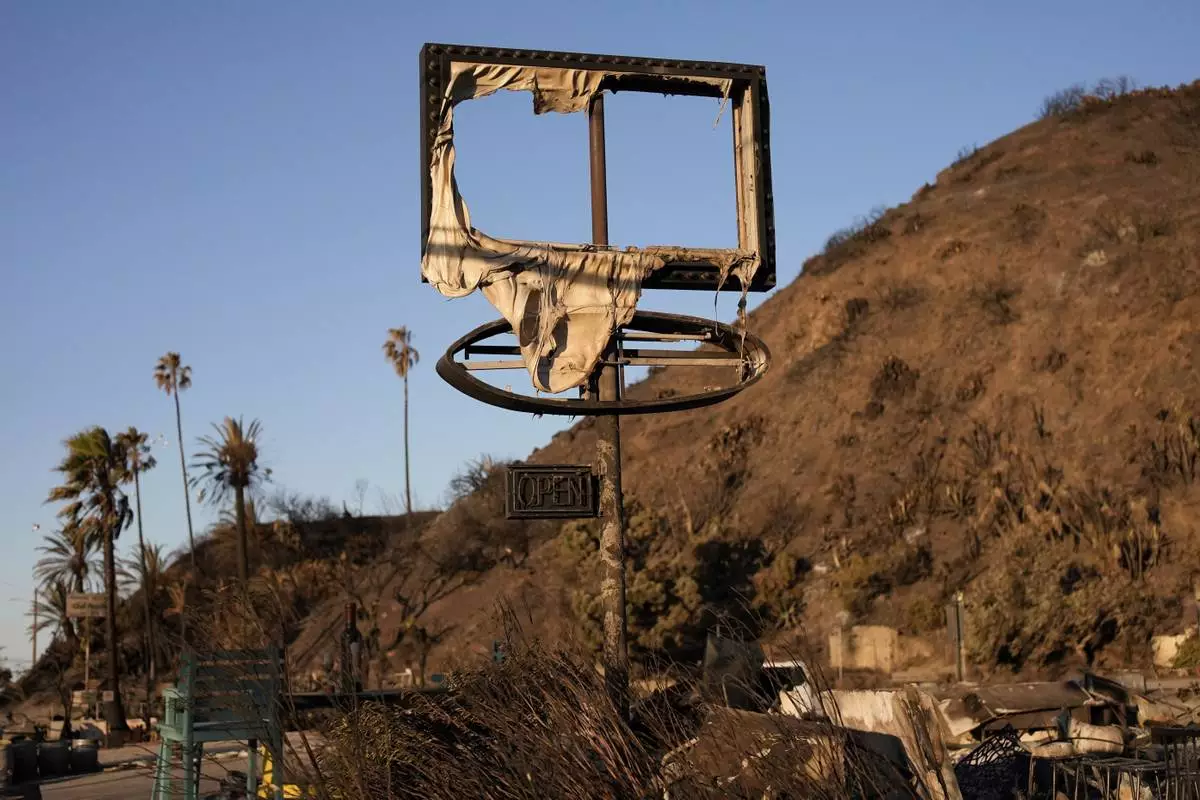
A sign is left behind, damaged by the Palisades Fire Monday, Jan. 13, 2025 in Malibu, Calif. (AP Photo/John Locher)
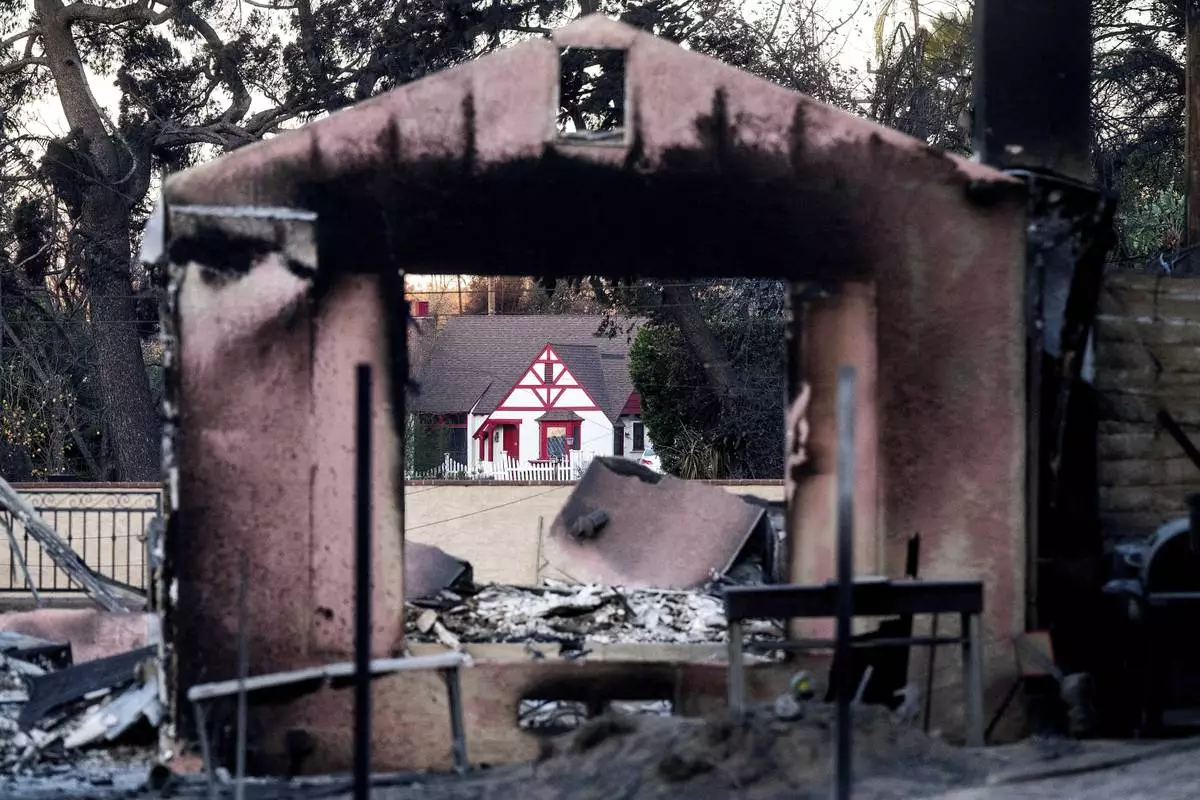
A home destroyed by the Eaton Fire stands in front of a home that survived in Altadena. Calif., on Monday, Jan. 13, 2025. (AP Photo/Noah Berger)
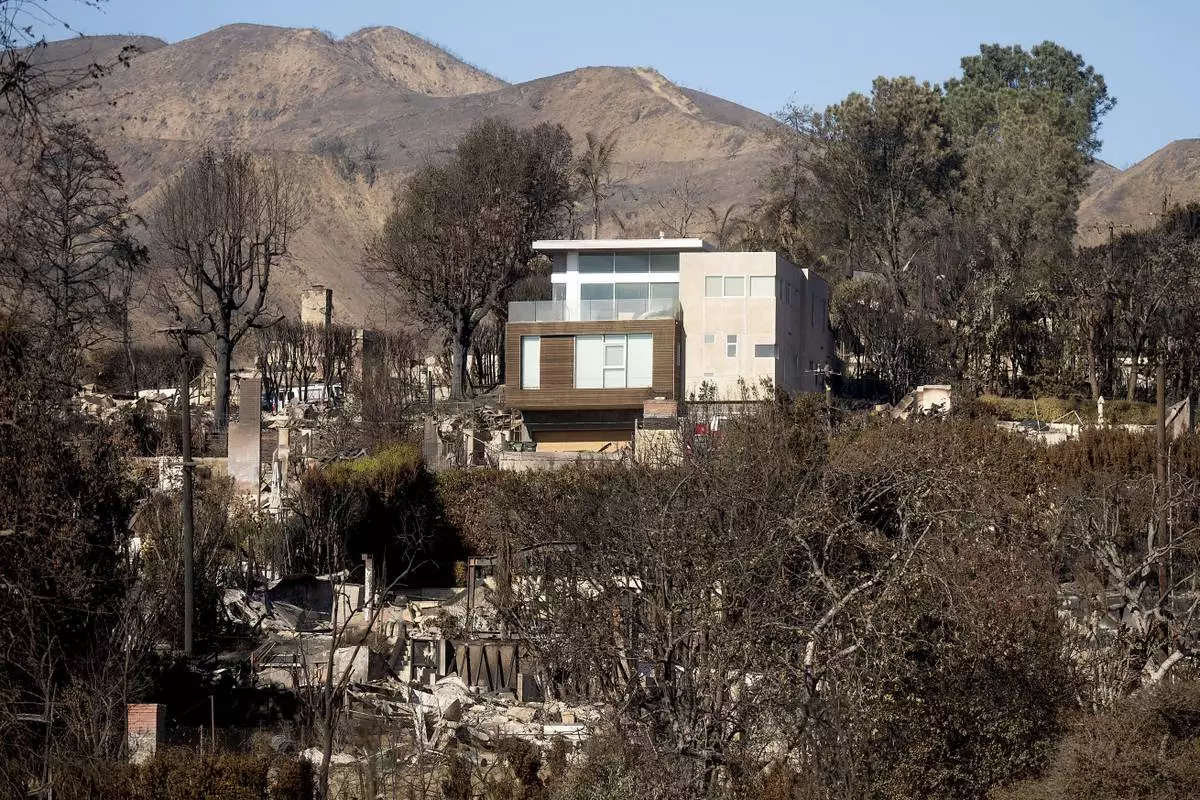
A home stands among residences destroyed by the Palisades Fire in the Pacific Palisades neighborhood of Los Angeles on Sunday, Jan. 12, 2025. (AP Photo/Noah Berger)

A Cal Fire engine crew with the Nevada-Yuba-Placer Unit hoses down a hotspot at a home destroyed by the Eaton Fire in Altadena, Calif., Sunday, Jan. 12, 2025. (Stephen Lam/San Francisco Chronicle via AP)
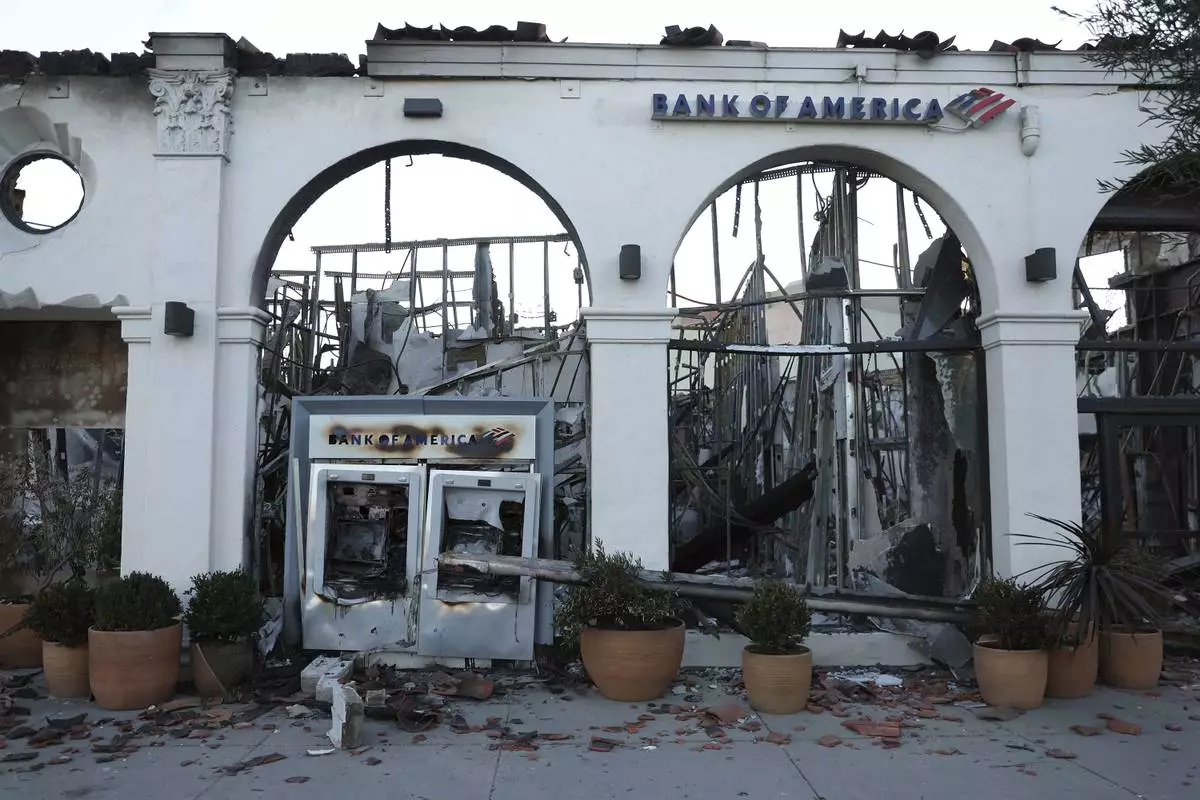
A destroyed Bank of America is seen on Sunset Boulevard in the aftermath of the Palisades Fire in Pa cific Palisades, Calif., Sunday, Jan. 12, 2025. (Scott Strazzante/San Francisco Chronicle via AP)
